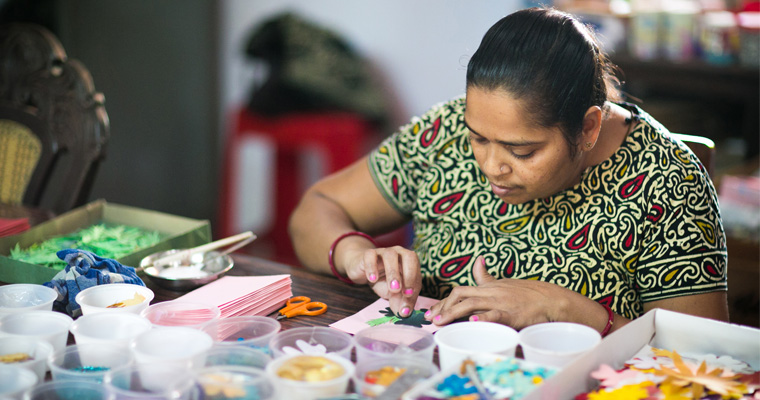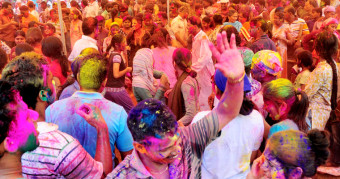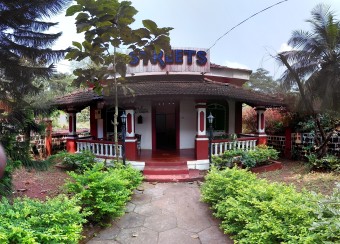A new suicide prevention hotline in Goa takes off
You are going through hell. You have family problems, ask wrath of relatives, adiposity mean spirited bosses and unstable relationships. It’s all waiting for a trigger to explode. It could be an ordinary moment where a friend suggests that you are not looking good and should start working out or a colleague mocks you about how happening his life is. Your repressed problems suddenly swell until you can’t take it anymore. Suddenly, the simplest daily chores become impossible. And you are too stubborn to get help.
It’s a matter of seconds when an individual chooses to either turn a page or close the book. It is that period where the death instinct (thanatos) is pushed into overdrive and the life instinct (eros) resigns to the back seat. If those few minutes are spent in isolation, there are more chances that the person will go forward with a tragic act. However, if that dark period is broken by a phone call or a friendly embrace, things could be different.
“We can conduct hundreds of programmes and seminars. But if no one is available to someone in need of help at the given moment, when the person is caught between life and death, then there is no point if we cannot actually save a life,” says Dr. Peter Castelino, co-ordinator of the suicide prevention program by the group called Cause Of Our Joy (COOJ). “People have a variety of problems of different intensities. So compared to the stigma of going to a psychiatrist for help, this lifestyle of living virtual lives and depleted interaction skills may make the helpline a more familiar medium for them to communicate.”
The COOJ Mental Foundation basically deals with rehab and awareness for people with mental disabilities, conducting workshops and seminars. It also acts as a support group for families, giving them an opportunity to socialize with people similar to them and then eventually move into a more mainstream environment. It also provides a chance to complete their education and get jobs. The group began working in 2000 and was registered as COOJ in 2002. Co-founder Thereza Trinidade, who lost both her husband and her daughter to illness, joined forces with Dr. Peter, as it was her daughter’s last wish that her money be used as an aid for a rehab centre for people with mental disabilities.
“We follow a structured procedure here to bring them out of the stage of mental illness that they were admitted in. Even the work they do here, like making paper bags, gift bags, cards and paintings fetches them a stipend at the end of the month, which gets deposited in their bank accounts,” Dr Peter explains the functioning of COOJ. The centre caters to persons with mental illnesses such as depression, anxiety disorders, schizophrenia and autism. “I believe they are much more alive here than simply sleeping isolated at home. Here, they learn to be more independent.”
Dr. Peter Castelino, who hails from Aldona, is an experienced psychiatrist practicing at Mapusa. “People may question whether the helpline is the ultimate solution to the problem of suicide; nevertheless it is surely a way ahead. It is in fact the responsibility of everyone in society. Family, teachers, law makers, law keepers and the health system should all join hands to make it succeed.”
A proposed mental health bill, yet to be cleared in Parliament, would classify suicide as a circumstance of an illness rather than a crime. Dr Peter explains that help is certainly around the corner. “The stigma in the society is reduced now, as education has prepared people to accept that mental illness is a biological disease and that treatment of mental health problems could be a very big factor is suicide prevention.”
COOJ also plans on conducting gatekeeper workshops – wherein trained professionals like teachers, policemen, clergy, nurses would learn to detect high risk people who are prone to suicide and deal with the crisis situation.
Donna Noronha is a volunteer at COOJ and now the Assistant Coordinator of the project. “I think my innate ability to want to know people and understand them gives me that joy in my work,” says Donna.
COOJ is in search of more committed volunteers who are ready to sacrifice a few hours in a week and help a stressed soul. “They need to be compassionate, good listeners, mature thinkers. Being multi-lingual with the local dialects would be an added bonus,” states Dr Peter on the qualities they are looking for in candidates. “They would be put through an interview wherein their views on spirituality, crime, sex would be assessed to comprehend their general view of life.”
These selected volunteers will be trained on weekends over a span of 2 months by qualified staff from Pune and Bombay. With the hope of setting the phone lines open by September 2013, the core team is busy conducting meetings and interviews. COOJ has also roped in famed Goan musician Remo Fernandes as the voice for the suicide prevention program.
Anyone feeling inspired? Ask yourself one question: can I stay committed to my mission of coming to the centre (Mapusa) at my appointed slot and dedicatedly attend to the calls? If the answer is yes; call up Donna on 982298851. You can also log onto www.cooj.co.in for more information.
.
.
.






